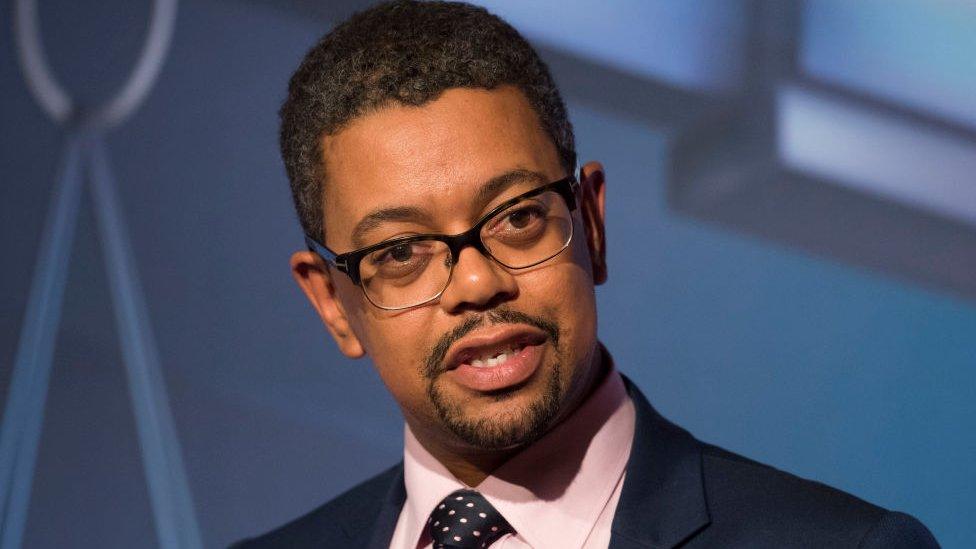Coronavirus: Shielding paused for 130,000 in Wales
- Published
Richard Bluck says he may not be able to hug his daughter until a vaccine is found
People with underlying health conditions say they have mixed emotions as shielding ends for about 130,000 in Wales.
Those most vulnerable to Covid-19 had been asked to stay inside since the beginning of the pandemic.
Richard Bluck, 37, is so vulnerable he says he may not be able to hug his daughter until a vaccine is found.
People who were shielding are advised to pay strict attention to physical distancing and good hand hygiene.
And the Welsh Government has said the situation could change again in future if cases begin to rise.
But some groups are concerned pausing shielding from Sunday is too much of a risk, with transplant patients told by the Renal Association and Kidney Care UK to "ignore government advice" about ceasing to shield.
The Welsh Government advised those people to speak to their doctor.
Mr Bluck, who has cystic fibrosis (CF) and underwent a double lung transplant in 2018, has been shielding since early March.
His eight-year-old daughter Evelyn lives with his ex-wife, who is a nurse.
"It might be when a vaccine is found that'll be the next time I'll hug my daughter," he said.
"The hardest part of the initial lockdown was not being able to see my daughter at all for quite a long time."
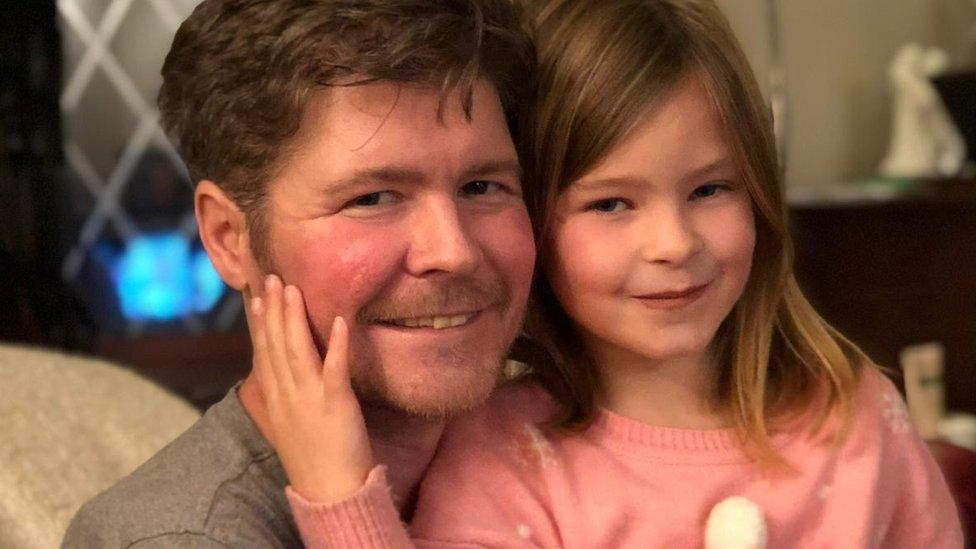
Richard Bluck, pictured with his daughter before the pandemic, says Evelyn mostly understands the situation
He added: "Even when the lockdown finished, Evelyn came over to visit me in the garden but that was still at a distance and that's a really unnatural thing, no hugs and playing and talking at a distance.
"When she turned eight in July, it was really strange not giving your daughter a cuddle on her birthday. So that's been the toughest part of all this."
Mr Bluck said his daughter mostly understands why their contact is so limited.
"It's so hard to say but it could cost me my life.
"A child's mind won't think forward in time like an adult does and there are tears and emotions from both of us.
"I'm just honest with her and explain what would happen to daddy if I caught the virus.
"Because she's seen me close to death before, she knows I've had a second chance of life.
"She'd never forgive herself if she thought she could be responsible for her father's death, is basically what it comes down to. So I don't want to put her in that situation."
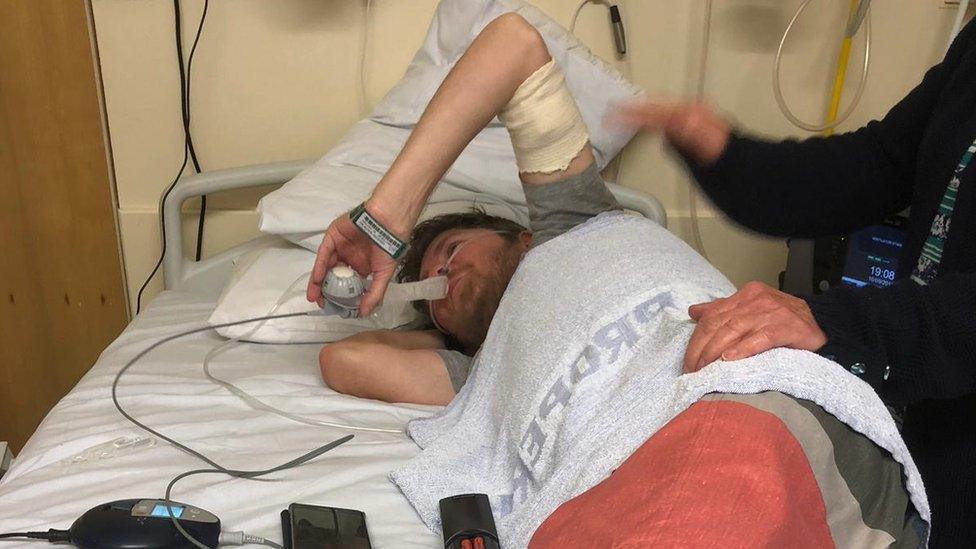
Richard Bluck's only chance of survival was a transplant
Mr Bluck, from Llysworney in Vale of Glamorgan, has lived with CF from birth and is on immunosuppressive therapy - which lowers his immune response to stop it from damaging or rejecting transplanted organs.
He almost died before his transplant, with his lung function decreasing as his CF worsened throughout his 30s. By March 2018, he was hospitalised at Llandough in Cardiff and remained there for six months until he was taken to the Harefield Hospital in London, the largest specialist heart and lung centre in the UK.
"My left lung had started to disintegrate and the infection was leaking out of the lungs and into the blood stream which caused sepsis.
"I also suffered a small heart attack. My only chance of survival was a transplant."
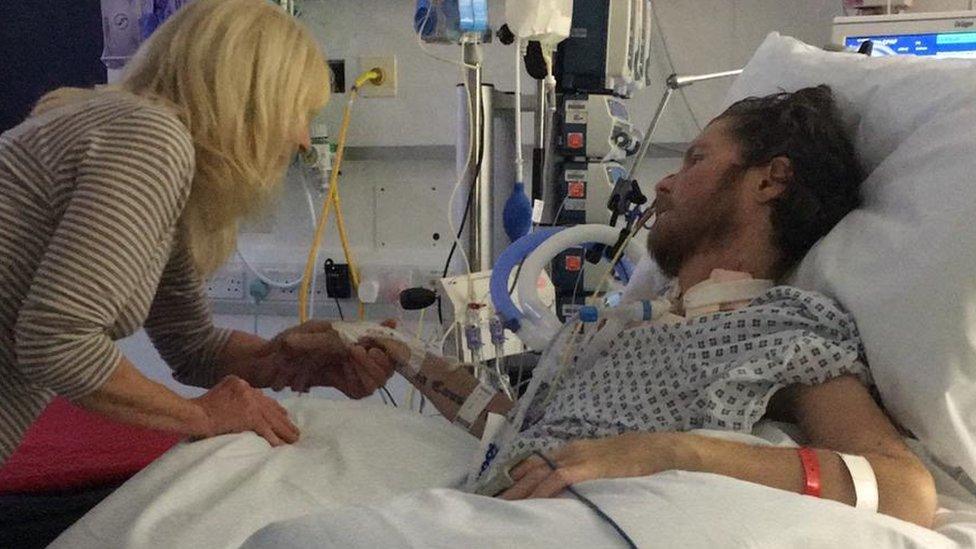
Richard Bluck almost died but was lucky he was able to receive a double lung transplant quickly
Mr Bluck was only on the waiting list for two weeks before a suitable set of lungs became available and he was able to have the transplant.
"It gave me a second chance of life, so for me to be impetuous and say let's forget about this virus for a moment isn't worth the risk.
"I know some people find it very difficult and they will take that risk, but what I've experienced, I feel this is the only sensible option, so Evelyn can have her father around for a lot longer."
Mr Bluck has been working from home and will continue to do so after shielding ends - meaning he can choose to continue to shield.
"I know a lot of people will think 'thank god for that, I'm off on holiday, maybe even abroad', which is fair enough but for me personally the risk is still there, the virus is still out there."
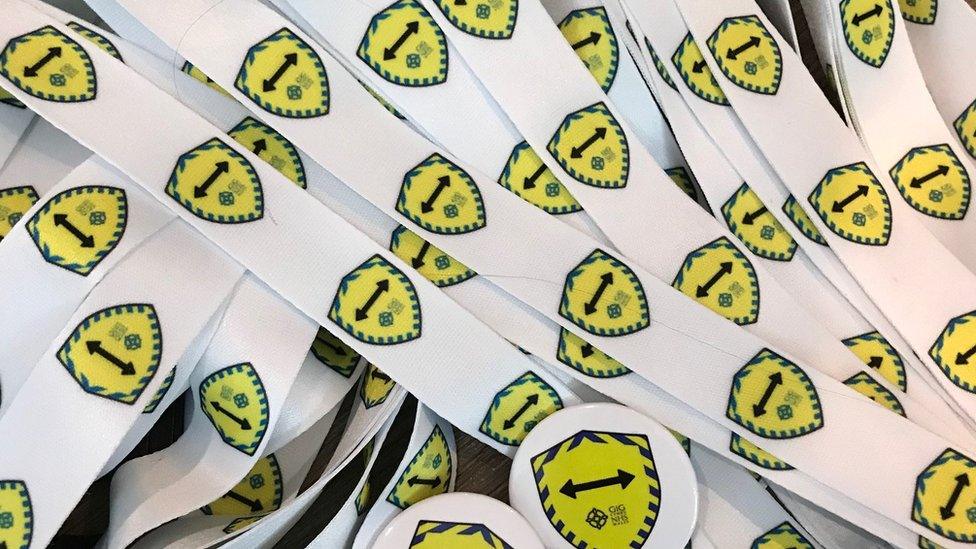
Badges with the image of a yellow shield are being distributed across the NHS in Wales
Age Cymru is conducting a survey on how older people feel about ceasing to shield, and said it had received a mixed response.
Chief executive Victoria Lloyd said: "Many older people are looking forward to coming out of shielding so they can visit more places and see more people.
"However, we know that many are concerned about re-engaging with their communities. This concern seems to be fuelled by reports of people gathering in large numbers or not following government guidance.
"Others have told us that they have lost their self-confidence and are worried about mixing with others in shopping centres or on public transport."
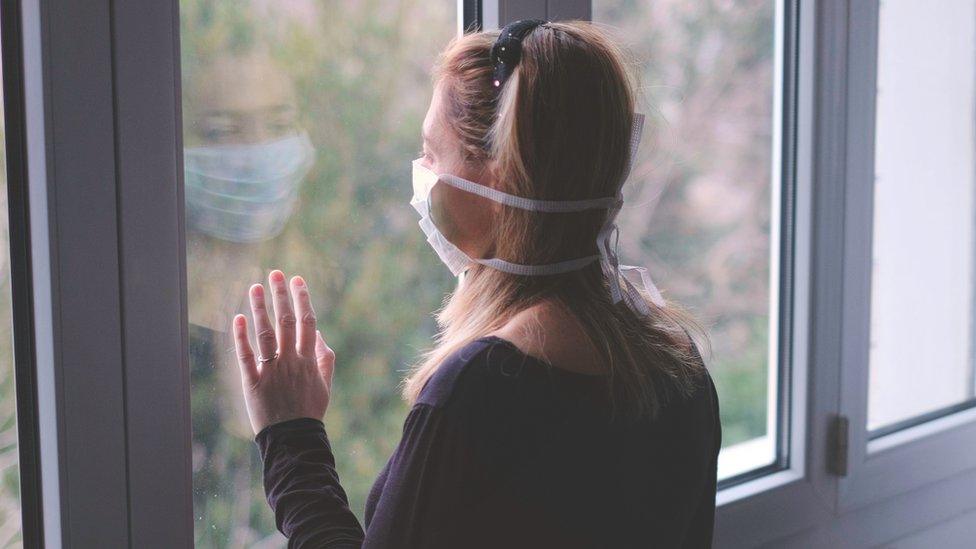
People who are shielding are being sent letters updating them on the latest situation
The charity is urging supermarkets to retain designated times for vulnerable people so they can continue shopping during quieter times, and that priority food and pharmaceutical deliveries should remain.
Frank Atherton, Wales' Chief Medical Officer, said: "At the moment we're seeing very few new cases in Wales and that means we have scope now to say to the most vulnerable people... they can start to reengage with society, start to get back to their normal lives."
He said anybody coming out of shielding had a very low chance of coming into contact with coronavirus - and there was a window of opportunity in the warm weather while transmissions were low.
"I'm very grateful to those people who have been in the shielding group, they've been protecting themselves and they've been protecting the NHS by not getting sick.
"They will naturally be very anxious about coming out, we need to make sure that we support people in their ability to do that.
"We mustn't underestimate the mental health consequences of being tucked away and not able to engage with people."
He said the situation may change as winter approaches.
- Published16 July 2020

- Published5 May 2020
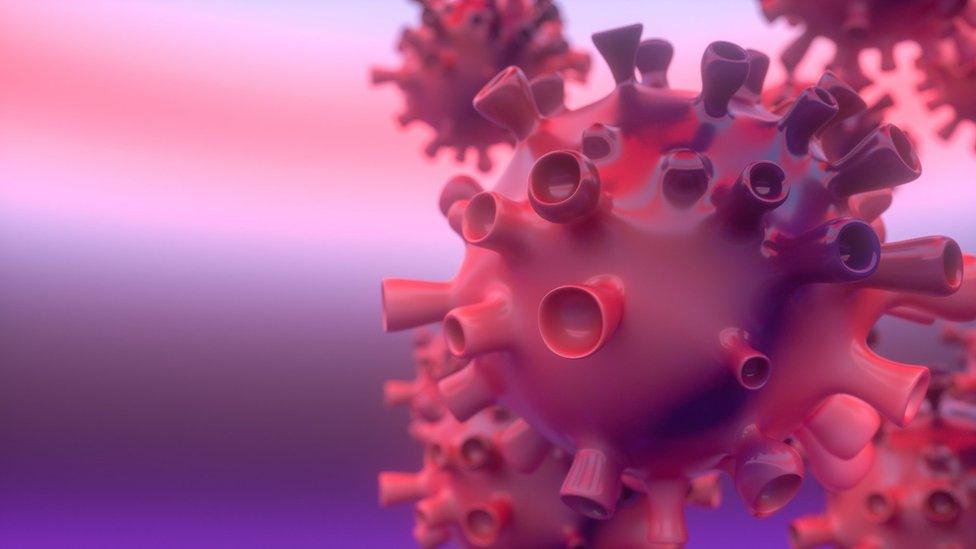
- Published15 April 2020
